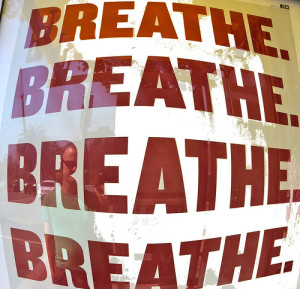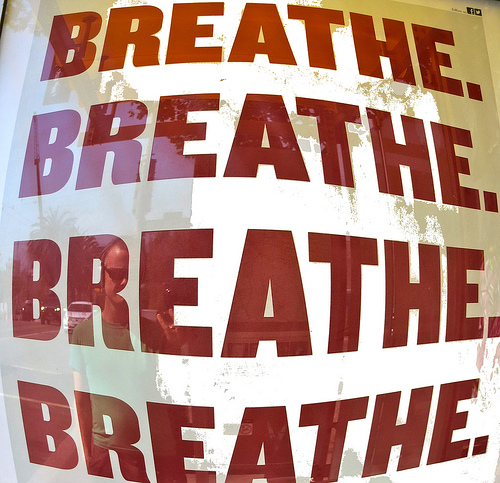Everyone gets nervous when they go on a job interview. It’s normal. So the first way to cope with your nerves is to accept them. It’s OK to be nervous.
Almost any performer will tell you that they get nervous before going on. I remember reading one actor saying that these are good nerves. These nerves are adrenaline nerves, almost excitement, and certainly anticipation of taking a risk. He channeled these nerves into his performance, using that adrenaline to fuel an authentic and emotional performance.
So your nerves also are a way your body tells you the stakes are high, that this is a risky situation, and that you feel vulnerable. Recognize that this means you want the job. And you can channel that desire into a good interview when you accept that you’ve done all the preparation you can.
Other performers have said that they do all the preparation they can and then they go on and do their best, leaving the worry behind the curtain or off camera. This means they learned their lines as well as possible, and rehearsed until the lines were almost automatic and they could work on their emotional approach so the audience would accept them as the character. But they have no way of knowing who’s in the audience or what the audience will think. So they must let go of the result and simply do their job, trusting that they’ve done enough.
So do your homework. Read the website and job description again. Develop questions for them about the position, such as “how does this position contribute to the company’s overall goals?” and “how will I know I’ve been successful at the end of my first year in the job?” And develop, then rehearse, answers to tough questions like “tell me about a time you failed and how you dealt with that” and “why did you leave that job?” Ask people you trust how you sound – just a couple, mind you, or your brain won’t be able to process all the feedback.
The best answers are those that originate in your heart or gut, not in your head. Because that’s where truth lies. That’s your authentic self. One caveat: if you’re a negative sort who tends to begin answers with “I’m not really this but I am that” or “I can’t do x but I can do y,” switch it around. Start with “I can” and “I am.” You are there to present your best self. Let the interviewers do their own job which is to sift through candidates. You don’t have to put yourself out of the running by emphasizing your lacks and inadequacies.
If you’ve done all the preparation you can, then allow yourself to keep the edge of anticipation while releasing the fear of not being good enough. You are good enough to have gotten the interview. That means you have the skills and abilities the employer is looking for. The interview is intended to verify that you actually do have those skills, and to find out who you are and whether you will be able to fit in with their culture. So most of them want you to be yourself.
In cases where you feel really uncomfortable in the interview, understand that you will not be a good fit for that employer. Remember that an interview is two-way. You are interviewing them. So pay attention to your feelings, and don’t let them overtake you. Acknowledge that they are present, and continue to respond to questions as you would if you were completely comfortable.
Here are a few tricks for centering yourself before and during the interview:
- Breathe.
- Arrive 10 minutes early, and go to the rest room and do a few jumping jacks to settle your energy and refocus yourself from the commute. Moving your body will help release nerves and calm you.
- Accept a glass of water if they offer. Use it to take a little break, and give yourself a little energy (often when we are tired, we really are thirsty).
- Remember you are good enough as you are, and if this is the job for you, you will get it, so no need to fret and worry.
- BE YOURSELF.
- Take a couple seconds to zero in on exactly what you want to say from your heart and gut.
- Breathe.
- Be confident that you’ll do a great job, because you are great.



